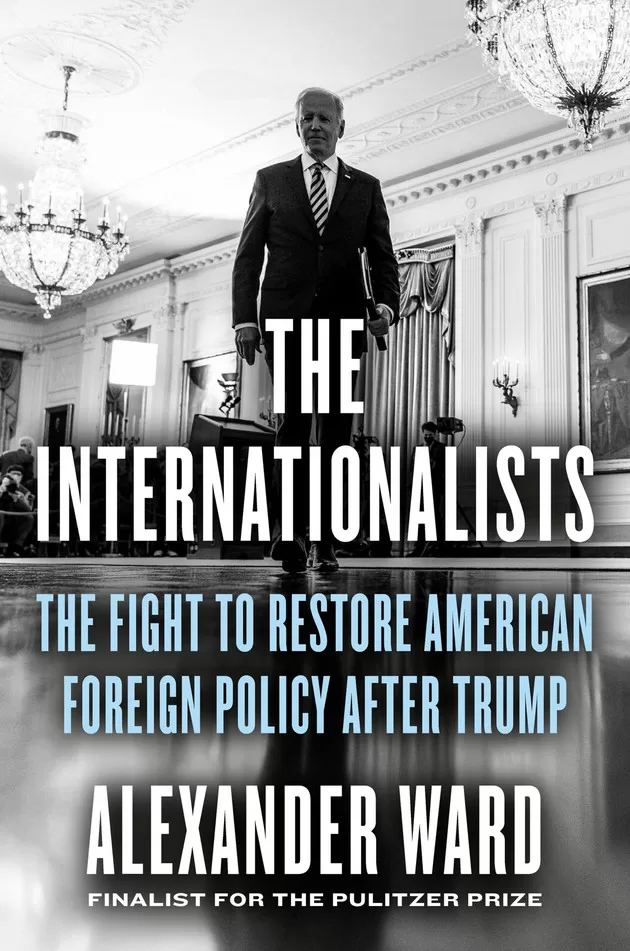As he strode up to the think tank, perched prominently on Massachusetts Avenue in downtown Washington, D.C., flanked by other prestigious institutions and embassies, Sullivan looked like any U.S. official at the upper echelons of power. His straw hair was matted down, swept to the right. He wore a typical dark-blue suit and a bright white shirt, muted by a gray tie. The national security adviser looked like he was about to give a speech like any other, like thousands before it by D.C.’s elite. Not this time.
“After the Second World War, the United States led a fragmented world to build a new international economic order. It lifted hundreds of millions of people out of poverty. It sustained thrilling technological revolutions. And it helped the United States and many other nations around the world achieve new levels of prosperity. But the last few decades revealed cracks in those foundations,” Sullivan said to a crowd of journalists, government officials and well-known experts. In other words, the Marshall Plan and the tech boom during the 1990s were products of their time and place. They wouldn’t necessarily have the desired effects in a modern context.
“A shifting global economy left many working Americans and their communities behind. A financial crisis shook the middle class. A pandemic exposed the fragility of our supply chains. A changing climate threatened lives and livelihoods. Russia’s invasion of Ukraine underscored the risks of overdependence.”
That was the problem. What was the solution? Instead of rampant globalization, Sullivan’s pitch was that a reenergized American economy made the country stronger. It was time to remake the Rust Belt into a Cobalt Corridor, to establish industries that led not only to blue-collar work but to azure-collared careers. If that was done right, a strengthened America could act more capably around the globe.
“This moment demands that we forge a new consensus. That’s why the United States, under President Biden, is pursuing a modern industrial and innovation strategy — both at home and with partners around the world,” he said.
Sullivan would go on to list why America needed to take this new path. Manufacturing in the United States had lost out to cheaper labor abroad. Growth for growth’s sake was inherently unequal, not benefiting everyone. The economic rise of other countries and their integration into the world economy didn’t automatically make them more democratic — some, namely China, simultaneously grew more powerful and despotic. And the free market at home and globalization’s effects wrought havoc on the climate while failing to incentivize greener means of production and industries.
Penguin Random House
Implicitly, Sullivan said the main assumptions undergirding America’s foreign and economic policy had been wrong for decades. China, and the Washington belief that liberalized markets would eventually lead to democracy within the halls of power in Beijing, was the most glaring example.
“By the time President Biden came into office, we had to contend with the reality that a large non-market economy had been integrated into the international economic order in a way that posed considerable challenges,” he said, citing China’s large-scale subsidization of multiple sectors that crushed America’s competitiveness across industries. Making matters worse, Sullivan continued, “economic integration didn’t stop China from expanding its military ambitions.” It also didn’t stop countries like Russia from invading their neighbors.
Sullivan, the accomplished debater, was dismantling, point by point, the dominant worldview that Biden held for decades and that the national security adviser grew up believing until Trump won the election in November 2016. He was, wittingly or not, offering a mea culpa for once being an acolyte of the foreign policy establishment. Now, cloaked in power, he was trying to right his perceived wrongs.
Righting wrongs was a throughline during Sullivan’s first two years at the helm alongside Biden, Secretary of State Antony Blinken, Defense Secretary Lloyd Austin and the rest of the team. Withdrawing from Afghanistan, despite the deadly chaos, was the right decision, he believed. The war was unwinnable, and there were other priorities to pursue. But, having missed the warning signs leading up to the takeover of Kabul, and with the trauma of seeing Russia take Crimea and a bite out of eastern Ukraine in 2014 still fresh, Sullivan vowed not to be steps behind as the Kremlin plotted to seize the whole of Ukraine.
